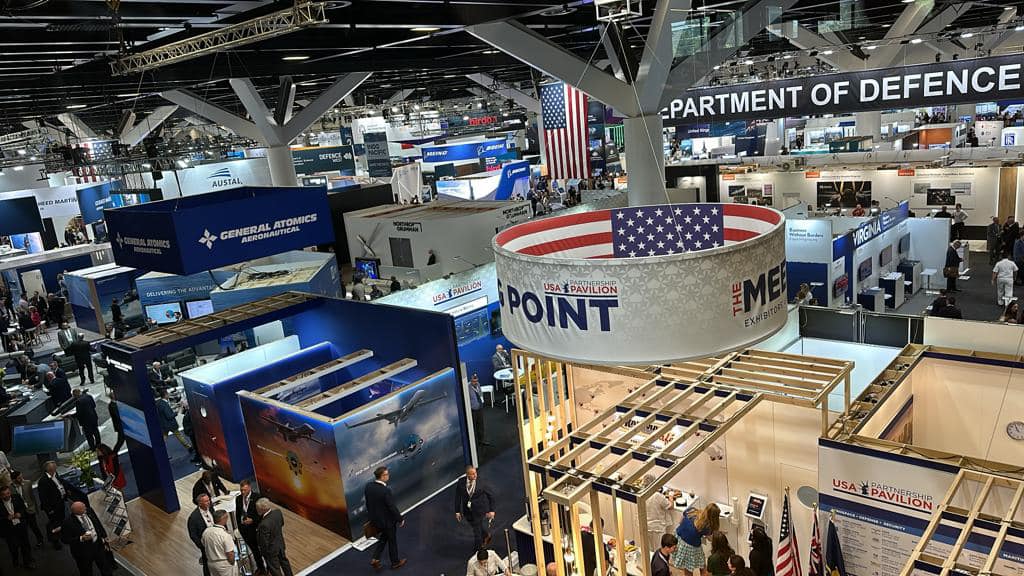
Only rarely at last week’s Indo-Pacific International Maritime Exposition did defence acquisition officials rise to speak without emphasising the importance of fielding new capabilities at speed. Among those taking this line were the leadership team of the Australian Defence Department’s newly formed Advanced Strategic Capabilities Accelerator. Everything about ASCA—from its name to its mission objectives to its procurement strategy—drives home the imperative of rapid development and fielding.
As long-awaited details emerge on the future of the new defence innovation construct, it’s worth stepping back to evaluate Defence’s plan to equip the future Australian Defence Force with world-beating technologies. Speed to capability is table stakes in the innovation game. It is not a strategy.
The initial concept for a new organisation focusing on defence research and development was quite different from that which eventually took shape. Envisioned as an answer to the US’s Defence Advanced Research Projects Agency, the proposed advanced strategic research agency would have incubated breakthrough technologies to shape the future of the national security landscape for Australia and its partners.
Along with the realisation that funding levels wouldn’t support such a strategy came a shift from ‘strategic research’ to ‘strategic capabilities’ and a dramatic scaling back of ambitions. Rather than investing directly in R&D to keep Australia’s defence industry at the state of the art, ASCA will primarily facilitate adoption of core technologies developed elsewhere. It will avoid projects that don’t start with a clear path to acquisition.
ASCA’s strategy provides a nod to the entity’s original remit with a commitment of approximately 20% of the budget to emerging and disruptive technologies. That is welcome. But it amounts to less than $70 million per year. Even as a percentage of GDP, the number is meagre next to the US Department of Defense’s 2024 commitment of nearly US$20 billion ($31 billion) to early-stage R&D.
Most of ASCA’s resources won’t go to direct innovation activities. Through its missions component, they will go to accelerating ‘the transition of innovation into capability solutions’.
Dual-use technology has become a convenient alternative to publicly funded R&D for Western governments struggling with pinched defence budgets. Even the Pentagon’s US$20 billion is down by more than 25% from the year before. This continues a long trend. Between 1960 and 2019, the US government’s share of national R&D spending fell from 65% to 21%, while its defence organisation’s share of global R&D fell from 36% to 3%.
The resulting reliance on commercial technology is not a panacea, and it’s past time Australia considered its implications. Many elements of national security policy require optimising forces that run counter to one another in the short and long terms. Managing the defence industrial base is no exception.
If we look just at the short term, dual-use technology would appear to fix everything. A smaller proportion of the defence budget must go to investment activities that will bear fruit only far in the future. We can be nimble, and dramatically cut the time required to address an immediate need. We are not forced to forecast what warfare will look like decades in the future as we develop an investment strategy.
But what are the costs? The biggest one is this: commercially available technologies are, by definition, easy to replicate. One need only look at the seesawing stalemate of the Ukraine conflict to see this phenomenon in action.
We can develop an edge in dual-use technology by designing an acquisition system that runs faster than an adversary’s. But it will never be more than an edge. On the time horizon of most acquisition systems—months or years, not decades—that adversary can mimic and counter our capabilities. Excessive reliance on dual-use technology creates not a sustained strategic advantage, but an arms race. Over time, we will not outpace our competitors.
Traditional public-sector investment in military technology happens in the dark. It starts with early-stage basic research underserved by a private sector constrained by the requirement for profitability. It is informed by commercially available technology rather than seeing that as an end in itself. By the time its core innovations manifest as military hardware, they often appear to be the province of science fiction. Matching them seems a lost cause, and the timeline for doing so spans decades. Spillovers change the world—think the internet, or GPS.
Classified, military-focused R&D doesn’t ignore private-sector expertise. Private companies are critical partners in the enterprise. The difference is that the focus from the beginning is classified military requirements. It doesn’t rely on commercial market demand that happens to align with those requirements.
If we maintain a strategy of early-stage, defence-focused investment, we will benefit from a continuous supply of world-beating technologies that are not readily replicable. We will create a sustained military advantage. But it’s easy to cheat when budgets get tight. Investments with benefits far in the future lose out to emergency operational requirements. Little by little, we sacrifice long-run strategic supremacy for short-run tactical advantage.
In the end, we’re left with a never-ending scramble for parity. We’re left with dual-use technologies whose advantage is defined not by the wisdom of our nation’s best minds but by commercial market demand and the bureaucratic efficiency of our acquisition enterprise. Meeting short-run requirements is important, and dual-use technology does that well. But it should be one component of a far deeper innovation strategy.
Given the budgetary realities faced by Defence, perhaps ASCA’s focus on rapid acquisition is a necessary second-best solution. Within its missions component as currently envisaged, there’s room to invite tenders on classified requirements and to shift the mix of programs towards earlier technology readiness levels. This must be carefully considered.
Speed to capability is a noble objective. But make no mistake: it will not create an ADF to dominate future wars, and it will not turn Australia into a defence-industry powerhouse. At best, it will keep us relevant.